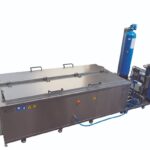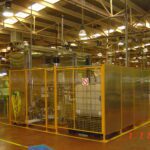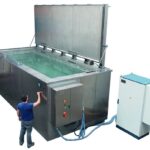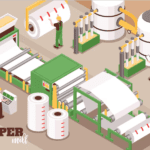Breweries are a complex and multi-faceted operation that require strict adherence to food safety regulations to ensure the production of safe and high-quality products. The HACCP (Hazard Analysis and Critical Control Points) program is a widely recognized and accepted food safety management system that is often used by breweries to improve the safety and quality of their products. The program helps to identify, evaluate and control hazards that could affect the safety of the final product.
- Ingredients and raw materials: The HACCP program can help to improve the safety and quality of ingredients and raw materials used in the brewing process. The program requires that all ingredients and raw materials are sourced from reputable suppliers and that they meet strict food safety standards. This helps to ensure that the ingredients and raw materials are free from harmful contaminants and that they are safe for use in the brewing process.
- Brewing process: The HACCP program can help to improve the safety and quality of the brewing process. The program requires that all brewing equipment and facilities are maintained in a clean and sanitary condition and that they are regularly inspected and maintained to ensure that they are in good working order. This helps to prevent cross-contamination and the growth of bacteria and other microorganisms that can cause food-borne illness.
- Packaging and labeling: The HACCP program can help to improve the safety and quality of packaging and labeling of brewery products. The program requires that all packaging and labeling materials are made of food-grade materials and that they are properly stored and handled to prevent contamination. It also ensures that the packaging and labeling are accurate and meet regulatory requirements.
- Transportation and storage: The HACCP program can help to improve the safety and quality of the transportation and storage of brewery products. The program requires that all transportation and storage equipment is maintained in a clean and sanitary condition and that it is regularly inspected and maintained to ensure that it is in good working order. This helps to prevent cross-contamination and the growth of bacteria and other microorganisms that can cause food-borne illness.
- Employee training: Employee training is an important aspect of food safety management systems, including the HACCP program. The HACCP program requires that all employees are trained in the proper procedures and techniques for maintaining a clean and sanitary environment, handling ingredients and raw materials, operating equipment, and identifying and controlling hazards. Food grade certifications also cover employee training, specifically in the areas of food safety, sanitation, and good manufacturing practices (GMPs).
- Food Safety: Employee training in food safety covers topics such as food-borne illnesses, cross-contamination, personal hygiene, and proper handling and storage of food. Employees are trained on the importance of food safety, the hazards that can occur in the brewery, and the procedures and techniques that must be followed to prevent those hazards.
- Sanitation: Employee training in sanitation covers topics such as cleaning and sanitizing procedures, pest control, and proper handling and disposal of waste. Employees are trained on the importance of maintaining a clean and sanitary environment, the hazards that can occur in the brewery, and the procedures and techniques that must be followed to prevent those hazards.
- Good Manufacturing Practices (GMPs): Employee training in GMPs covers topics such as product quality, equipment maintenance, and record-keeping. Employees are trained on the importance of following GMPs in the brewery and the procedures and techniques that must be followed to ensure that the products meet the highest quality standards.


HACCP program complements the employee training in these areas by providing a systematic approach to identifying, evaluating, and controlling hazards. By identifying potential hazards, the HACCP program helps to ensure that the appropriate preventive measures are in place and that employees are trained on how to recognize and control those hazards. The program also helps to ensure that all employees are aware of their roles and responsibilities in maintaining food safety and that they are trained on the procedures and techniques that must be followed to ensure the safety and quality of the products.
In conclusion, employee training is an important aspect of food safety management systems, including the HACCP program. Food grade certifications also cover employee training in food safety, sanitation, and GMPs. The HACCP program complements the employee training by providing a systematic approach to identifying, evaluating, and controlling hazards and by ensuring that employees are aware of their roles and responsibilities in maintaining food safety. This helps to ensure that the brewery is in compliance with the regulations and that the products are safe and of high quality






















